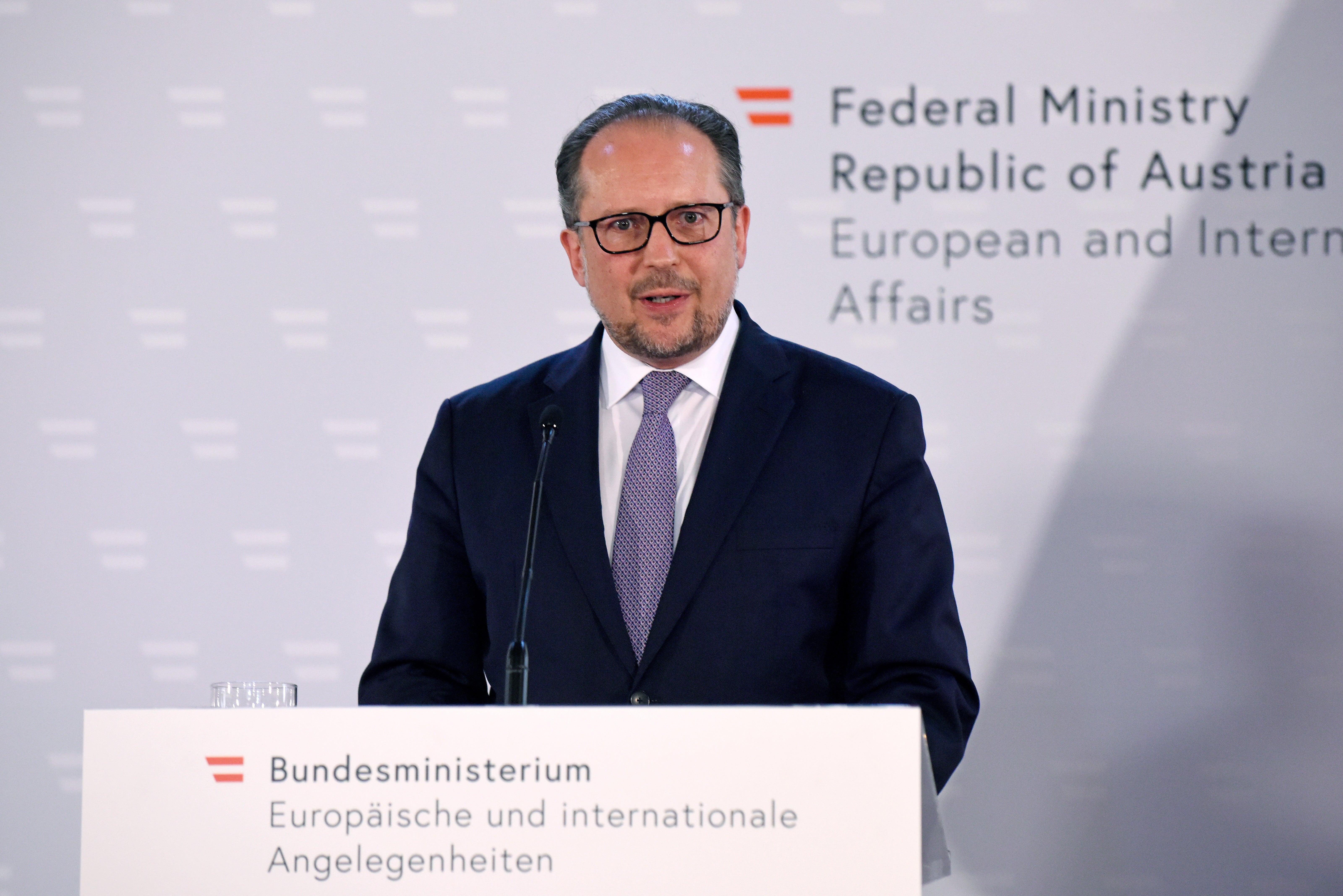NEWYou can now listen to Fox News articles!
Austria’s foreign minister does not believe Ukraine should obtain European Union membership.
Foreign Minister Alexander Schallenberg spoke at the 14th European media summit this week, saying that Ukraine should not receive candidate status in June. He reiterated Austria’s dedication to neutrality as a key element of the nation’s “self-definition.”
RUSSIA INVADES UKRAINE: LIVE UPDATES
“We don’t belong to any military alliance and we don’t want to,” he said, but he highlighted the contributions Austria has made to Ukraine’s defense, adding that E.U. membership and neutrality are “compatible.”
Schallenberg repeated his stance to Austrian publication Heute, but went further and said Ukraine should not, in principle, become a member even in the future. He called for a “different way” for Ukraine to develop ties with Europe.
His comments follow a meeting between Austrian Chancellor Karl Nehammer and Russian President Vladimir Putin on April 11, during which the two leaders held “direct, open and tough” talks, according to German outlet DW.
BLINKEN, AUSTIN TO VISIT UKRAINE SUNDAY, ZELENSKYY SAYS
Nehammer raised the issue of war crimes in Bucha, and said he came away from the talks with “no optimistic impression.”
Ukraine’s foreign ministry expressed disappointment with Austria’s stance, calling the Austrian official’s statement “short-sighted” and “not in the interests of the united Europe.”
CLICK HERE TO GET THE FOX NEWS APP
“Such statements also ignore the fact that the vast majority of the population of the E.U. founding member states support Ukraine’s membership,” said Ukrainian Foreign Affairs Ministry spokesperson Oleg Nikolenko, adding that postponing Ukraine’s membership means “indulging Putin’s aggressive plans.”
But around 40% of Austrians consider the government’s position on Ukraine as “on the whole correct,” while 23% believe the government is “too pro-Ukraine” and 17% “too pro-Russia,” according to Heute.
